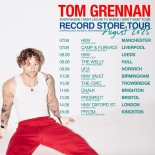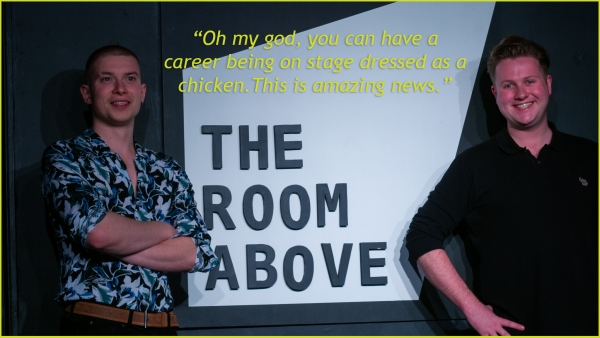
Getting to know The Room Above - with Harry Allmark & Alex Stevens
Posted on: 07 Nov 2022On the day of the their grand re-opening last October, we met up with The Room Above to chat about what they're all about, what's new - and what's happening in the future.
Who are you guys – and what is the Room Above?
HARRY:
I’m Harry Allmark, I am the artistic director of the room above. I’ve been doing shows here since I was at university, I took over this space in 2020, the first thing we did was close...[laughs]. Then we reopened in 2021.
We knew each other from doing sketch comedy at university. We linked up afterwards and started trying to put on events, and make this place into a blackbox theatre again; slowly learning what the city wanted, and where our strengths were.
So now we try and program a selection of all kinds of comedy: sketch, improv and standup. We’re trying to make a dedicated comedy space north of the river.
ALEX:
I’ve been involved with the theatre since it reopened after the pandemic – as Harry said, we knew each other when we were at university, we did sketch together. I moved back to Bristol to pursue comedy as an interest, met Harry – got along, had very similar interests, a desire to see there be a burgeoning fringe theatre in this area.
So he took me on and I’m sort of...general dogsbody around the area, really. If I’m to categorise myself more professionally I’m an “executive” in the sense of bookings, general running...but we’re quite fluid and malleable in terms of what our roles are here.
HARRY:
Apart from that, there’s a lot of us that help out here as well.
ALEX:
Yeah, it’s a lovely community. We’re looking to expand in the future and make it all a bit more official, but at the moment it’s been lovely to have a group of people who have just mucked in to make this community space happen.
HARRY:
It’s weird going from when we met up after the pandemic, and kind of knowing each other in our uni days to what was pub chat, into what it is now.
ALEX:
Yeah, and then being able to use this place to take shows up to the Fringe under the banner and have comedians that went on to get nominated for pretty prestigious awards at the Fringe debut their work in progresses in Bristol.
We’ve had a lot of interest from people post-Fringe that want to bring their work here. It’s crazy, to have had a pub chat and then actually have it manifest into something tangible that probably exceeded our drunken expectations at the time.
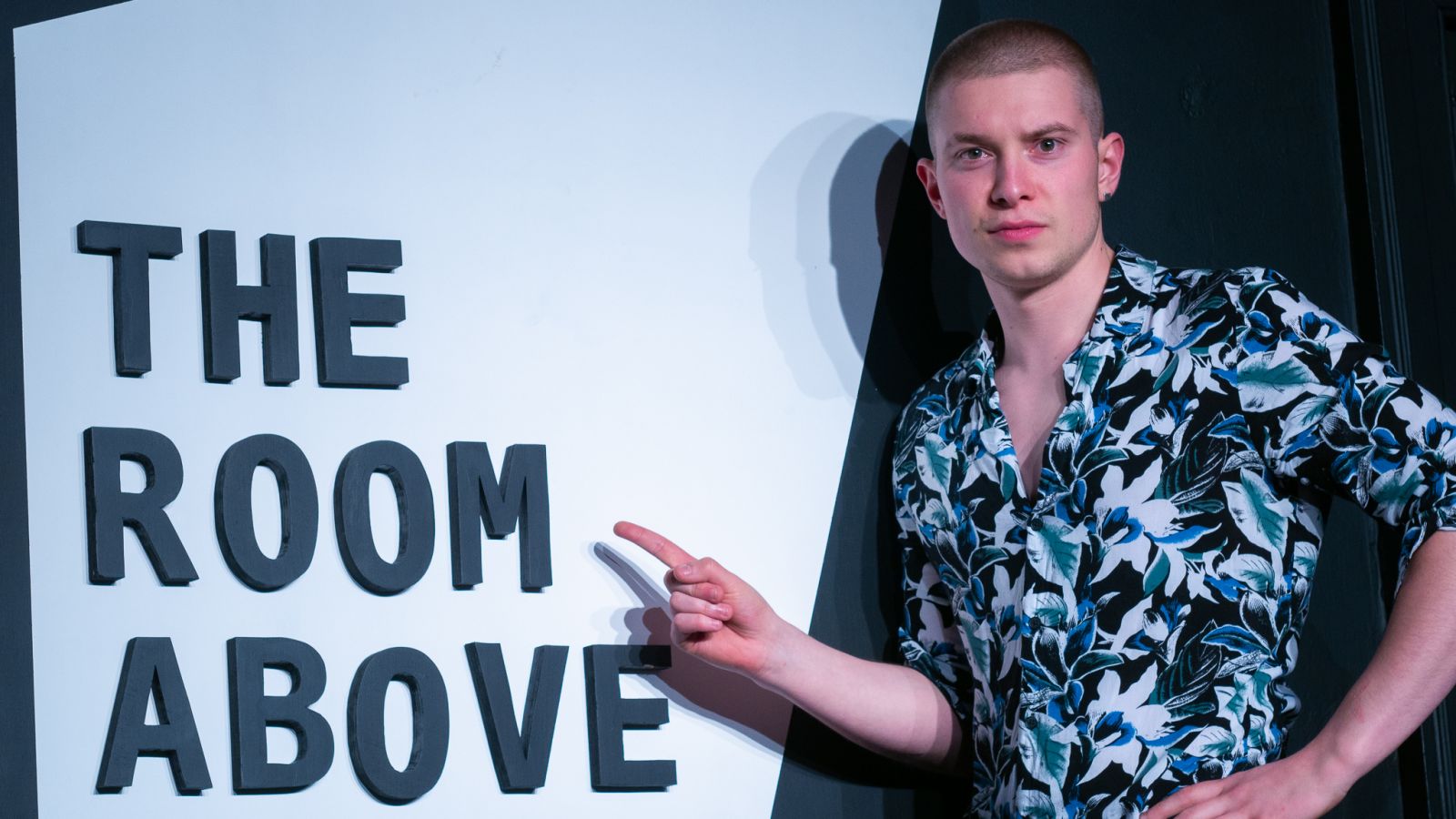
How did you take it over – was it different before?
HARRY:
It was founded and set up by a guy named Sam Patching, who was on my course at university but a few years above me.
I think the programming was different in that it was more of a ‘new writing’ theatre. There was a lot of site-specific stuff that was taking place. Riddlestick were commissioned to do a fair few things here, they’re a great theatre company.
I mean when I was doing shows here as a student, back when it was Sam doing it, that was just with university societies. Comedy still happened here, there were still some great things – I mean, Elf Lyons performed her show here and she’s just a superstar now…
ALEX:
Yeah, I didn’t really know of the place when I was at university – it was only really later in life - the last two years that I really had a vested interest in performance.
I think I did my first ever stand-up set here...
HARRY:
Yeah, I did mine here.
ALEX:
Yeah, and it wasn’t even a proper thing, it was just some people throwing a thing together – saying “Oh, go on, just get up and do it, everyone’s having a bit of fun”.
Our USP is we’re comedians that run a venue. So, we’re not moneymen, or bookers exclusively – which comedians can often find quite difficult in terms of how to deal with.
We love to practice comedy, we gig around the city, we’ve been gigging away a bit more as well. As a result of being in the scene, we’re able to see there’s such a burgeoning crop of talent. I couldn’t tell you why, but this generation of Bristol comedy is plentiful with talent, and desire, and people looking to practice it.
Some are looking to pursue it as a career, and others just really enjoy getting up on stage a few times a week to break the mundanity of everyday life.
Being able to curate the space that can provide that two, three times a week for people to do that, and practice what they enjoy, makes us very happy, creates a space the comedians really enjoy coming to – and as a result – you create a place audience enjoy coming to.
I think really focusing in on that has done us well, and hopefully will continue to, because I don’t see this crop of comedians going anywhere – well, other than to the top.
HARRY:
Yeah, I think the pub as well, was struggling to find an identity around that time – it was changing hands a lot.
This new renovation that’s going on...the guys downstairs are definitely giving the bar a new kind of identity that matches the area, and the students as well...I think that’s going to be a nice change.
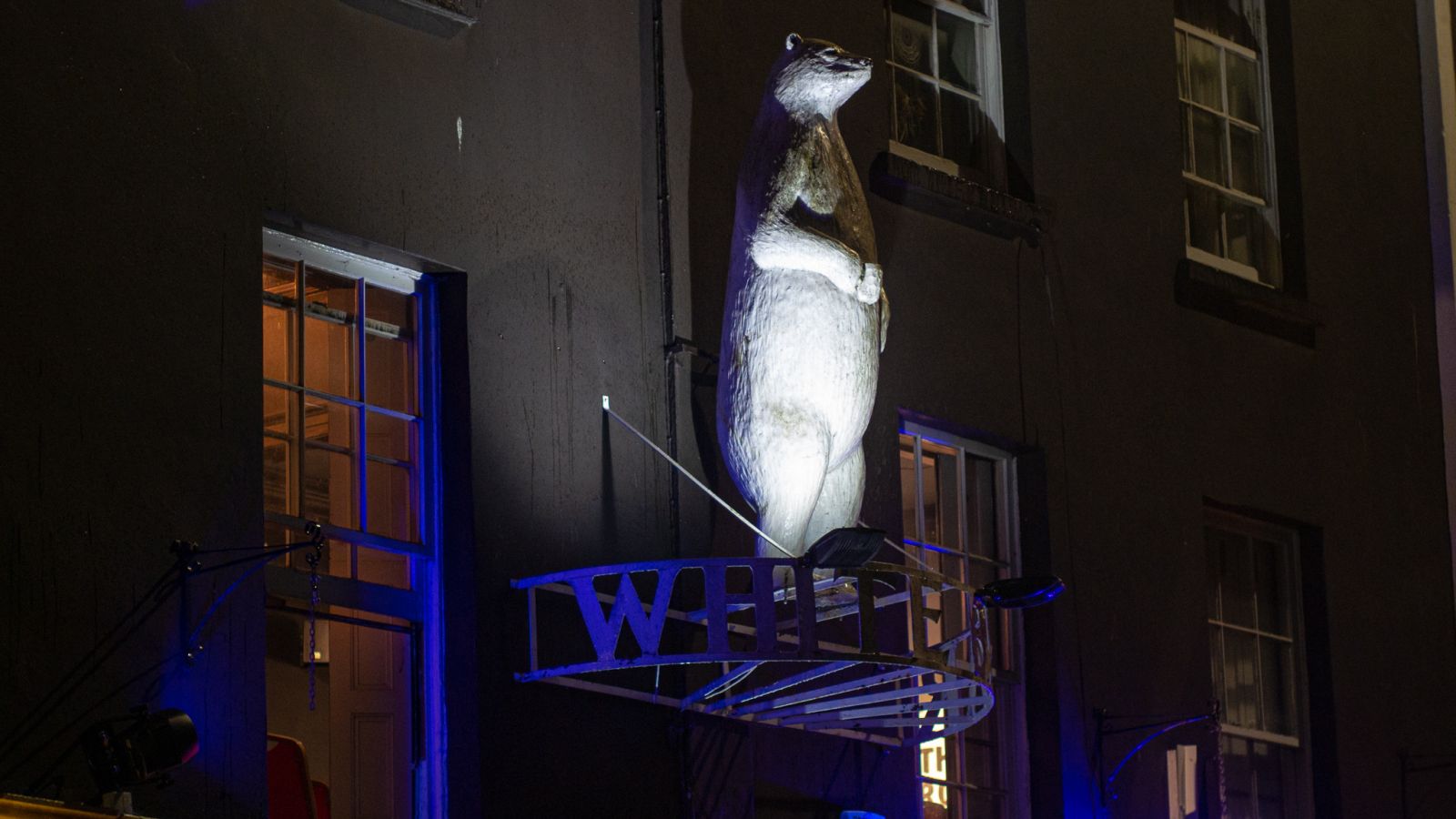
What does the renovation of The White Bear mean for the Room Above?
HARRY:
Thankfully, they were completely within their rights when they took over the space to say “Oh, we don’t want to go for this kind of thing…”, but they’d seen the work that we were doing in the past year, and they’ve been nothing but keen – and nothing but supportive as well.
They really like the space and the plans we have for it, and they want to work together in making that happen. We want to start collaborating more and bringing these two separate entities together – which I think is going to be a really great thing.
The plan would be, in the next few years, to expand, and maybe look at other venues, in other cities, and then building this up as a hub.
ALEX:
We very much seem to align on what we’re after, the communication’s been great – they’ve been really supportive, we’ve tried to be as supportive as we can back. The thing with us as well is in the beginning, as Harry said, there was no innate reason for them to keep us on other than being able to point to our proven track record at this point.
You can get a case of imposter syndrome when you set up a community theatre, to start with. We are now, but it wasn’t at the time necessarily running like a business...but to have some people come in, buy this pub, renovate, look at what we’re doing...definitely helped me get over that.
It almost legitimises you to a degree – not necessarily from the outside looking in, but in the way that I perceive myself, and us and what we do here; to have people come in and look at what we were doing, and consider us an asset, really make it feel like we’re on to something.
One of your USPs is you’re comedians and comedy lovers – is there ever anything difficult in that?
ALEX:
That’s a good question, I think the scene in Bristol is there’s an awful lot of people – but like Bristol as a city, it’s quite dense and on top of itself. So you see a lot of familiar faces, and inevitably, the more exposure you get to certain acts, the more you see them, see them do well, the more you’re then swayed to pick them.
But business always comes first in the way you curate nights, there are many many things to consider: making sure you provide opportunities to as diverse a group of people as possible – and that means anything from background, gender, race, to also the history you have in standup.
I mean, we wouldn’t be doing what we wanted with this place if all we did was every single open mic night, pick the five best comics that can pick up nights absolutely everywhere. We have a pro night for that, we have a night where we will book comedians that we think are worth paying X amount to.
But it’s important to us as well to give people opportunities to practice stand-up because...we were there. We’ve been there, messaging everyone on Facebook, trying to get someone to put in a good word for us, so we can get a spot somewhere – and the only way for you to build that reputation is for someone to give you a chance.
HARRY:
We’ve had people doing their first nights with us as well, who we’ve booked and then recommended to other nights as well – and supported them in terms of their joke writing, and their growth.
The one thing that sucks about comedy, because most people will start out doing it as a hobby, is it’s something you have to learn by doing. The first five minutes of standup I wrote is nowhere near my material now.
We want to set up an atmosphere where the crowd are aware this is a night to support – a night to come and be present, give these people everything you have, because it’s a lot to get on stage and trying make people laugh. Then those people have come back, and then gone on to do great things with comedy.
ALEX:
I think we’re quite lucky as well because – I wouldn’t even go so far as to be condescending, say you’re “taking a punt” on these people, I can think of very few times when it’s ever gone wrong. If you have the conviction to stand up on stage and tell jokes you’ve got something there.
It’s an insane thing to do if you look at it logically, you have to have some level of belief in what you’re doing – most of the time that’s well founded. So you get the opportunity for people to come and see a huge variety of different acts.
Going back to what you were saying – yeah, as a comedian on the scene, you have to be careful that you don’t ever look like you’re playing politics. The minute you start running a night, your stock goes up, because people want to book you for their nights, so you’ll book them on yours…
There’ll always be an element of that on any night, whether it’s comedy, music...But I think it’s important to us to curate a diverse lineup of different ranges and different kinds of people with different perspectives.
.jpg)
Any personal highlights of acts you’ve booked?
HARRY:
Oh my god...I think there’s a lot for me.
ALEX:
He’s a real comedy nerd, this guy, he’s gonna have so many...I’ll have never heard of half of these.
My biggest one is yet to come, we’ve got him booked to come.
HARRY:
Who is it?
ALEX:
Alisdair Beckett-King.
HARRY:
Alisdair Beckett-King coming here is unreal! That’s very exciting.
ALEX:
He’s coming in November. We’ve got Finlay Christie – we’re still pending on getting a date booked in with him because obviously he’s risen onto telly now, so trying to keep him pinned down for anything is really difficult. But he’s keen, we’ve had him once before so it’ll be great to have him back again.
HARRY:
Absolutely.
I think one of the big ones for me would be like the Lovely Boys. I met these guys before, they booked in at around April time I think. One of them – Joe – got poorly last minute, couldn’t make it, so Mikey came down and he got some other friends who were in Bristol to do this variety night and it was just a bit up in the air – it was a chaos night. He was great, the night was really great.
They were working on their Fringe show, then they did their preview here, which sold out and was absolutely amazing, the atmosphere was through the roof. Then we hung out with them at Fringe.
A highlight that was a very funny thing was when we had Luke Chilton here.
ALEX:
Oh my god, the dog!
HARRY:
Someone who was staying upstairs had a dog – we still don’t know how this happened-
ALEX:
This was completely on my watch as well, I was running the evening.
HARRY:
The dog had got out of the flat, and come downstairs and snuck into the theatre. You had Luke Chilton...[he gets up on stage] you had Luke Chilton up on stage, sold out show, with the dog just barking at him. He was like “I’M DOING THE BEST I CAN!”
Alex:
Did crowd work with a dog for five minutes, it was fantastic.
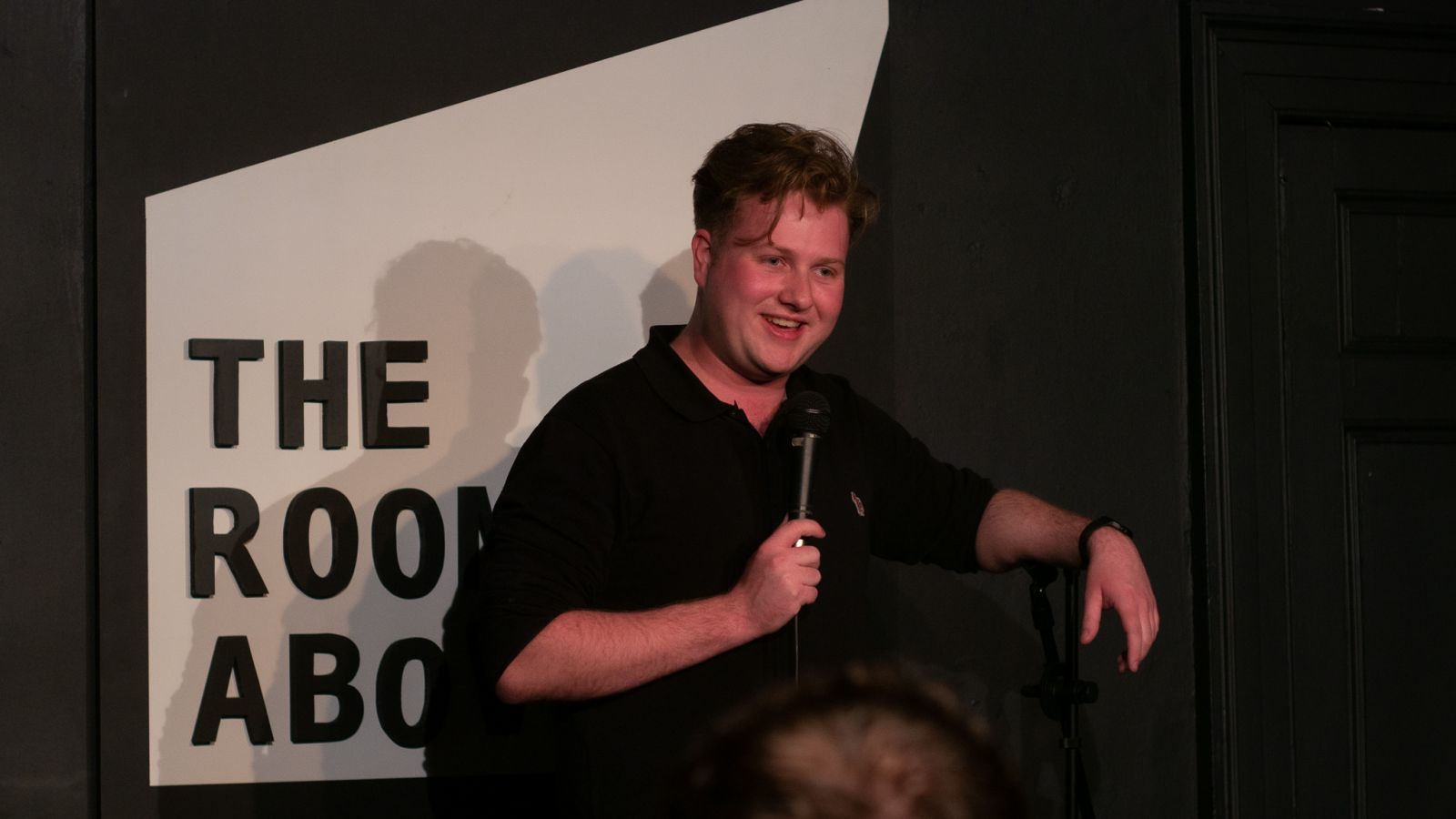
Who do you really love in comedy – who inspired you to be involved in the comedy scene?
HARRY:
The first person that made me want to do stand-up...I mean the answer’s changed for me now (not in a bad way), but I remember watching Russell Howard and Lee Nelson on BBC3. Russell Howard’s Good News, and Lee Nelson’s Well Good Show. Watching those on BBC3 as an 11-year-old staying up too late before school and thinking “this is what I want to do”. They were big inspirations.
Now...I mean it changes so often.
ALEX:
That’s exactly what I was thinking.
HARRY:
There’s a thousand people that are great – I think, as well, a lot of my stuff comes from people who are coming up. I’ll think: “that’s a great modern take on something” or people who are just really good at their craft. I like Luke McQueen, he’s really good...Tom Walker is mental, I think he’s hilarious.
Elf Lyons, when we had her here, that was a great show. That was the first show I’d seen that was kind of clowning. I was in my first year at uni and before that, there wasn’t much clowning in Shropshire – and that was a kind of “Oh my god, you can have a career being on stage dressed as a chicken, doing silly things. This is amazing news, I didn’t know this was an option.”
ALEX:
Mine’s constantly been changing. I was raised by parents that were constantly trapped in the olden days – I’m not mad about it, but I was raised on Monty Python, and Fawlty Towers and stuff. I remember the days of sneaking E4 in before I went to bed, and that was The Inbetweeners, Jackass and stuff like that.
Now I’ve gotten older – like so many things, because of social media, in the last ten years the definition of comedy has changed so quickly. Now you have an entirely different brand that wasn’t really happening when we were younger, which is that kind of anti-comedy that can be done online.
Tim Robinson’s show I Think You Should Leave, on Netflix, is one of my favourite things I’ve seen. That’s definitely a product of that kind of meme culture in a way...that deliberately absurdist comedy.
That New York scene that does deliberately absurdist, anti-comedy is definitely something I enjoy Then, classic Brit, I’d just have to say Stewart Lee, he’s just one of the greatest of all time.
HARRY:
I think the reason I wanted to come to Bristol was that kind of alumni...it’s not even so much standup, you’ve got Simon Pegg, David Walliams & Matt Lucas, Liv Coleman. Them starting out in this Bristol scene in the late 80s, early 90s.
ALEX:
When you say that there’s so many people wanting to do comedy in Bristol, people say “isn’t that bad? Doesn’t that make it super competitive?” And it can do. But it’s all based on how you look at it, because most successful people come out of a generation, from a place.
There’s a view of comedy as quite individualistic, and you want to be successful, and view your peers as people you’re in direct competition against. But a healthy scene is one where lots of people can work together and have crossover and joint projects to bring people in on – and Bristol’s very good at that.
HARRY:
No one wants to see anyone fail. That’s the last thing anyone wants. Most of the time, as well, people want to help.
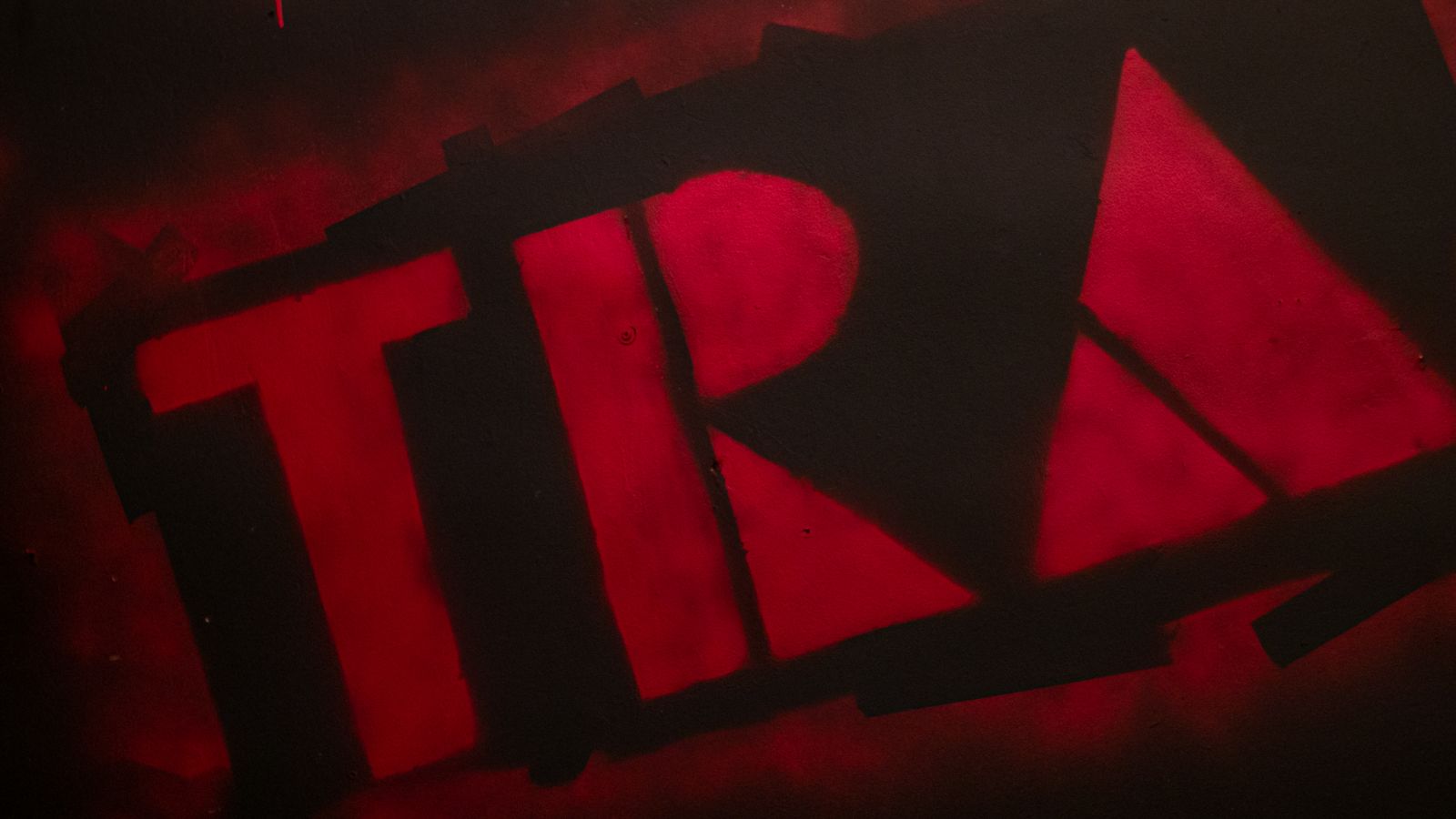
What plans do you have for the Room Above – or personal plans as performers?
ALEX:
Thing is, Harry is the visionary of the Room Above, so Harry has big plans. Whereas I have two-week plans.
I don’t want to jinx it, but it looks like from the presales and stuff, it looks like we’re gonna hit the next couple of weekends pretty strong. So the short term plan is to get back on the same groove that we went into Fringe with, and have a packed programme that’s clearly responding to what audiences want.
HARRY:
Yeah we want to pick up exactly where we left off as fast as possible. Hit the ground running. Then we want to shift to getting our content out, getting our brand out there.
We’ve got our new camera fixing up there, the new mixer so we can tap into our microphones – so we can just immediately start breaking down our shows into clips.
ALEX:
Yeah, it’s something we’ve been so bad for – I know it’s not good, in an interview, to admit misgivings but…
HARRY:
Hey, we’re learning man.
ALEX:
Yeah, we’re learning, but I think that’s something that’s incredibly important, to have that recognisable and potent online presence.
It’s a very simple formula – tonight we’ll film the show, for example, and those three comics tonight will be able to have that clip. They’ll share it on their respective social medias – and what’s in the background the whole time? The logo.
HARRY:
You’ve got to look at somewhere like Hot Water comedy club – that place just absolutely took over, and now they have like three venues in Liverpool with queues down the street for tickets. It’s insane, and a lot of that came from the social media stuff.
Then we’ve invested a lot in our podcast equipment, we’re going to try and get some audio stuff out there.
Finally, if you were Mayor of Bristol for a day, what would you do?
HARRY:
I’d make Taka Taka free. I demand that no one has to pay for Taka Taka at three in the morning. It’s free.
ALEX:
Okay, and the state’s just going to take on that financial responsibility?
HARRY:
Ehh, it’ll work itself out.
ALEX:
I don’t think that’s...true.
I’m going to promote my flatmate who was getting ready for a mayoral candidate run – which is never going to happen now they’ve abolished the mayor’s position. Shoutout to my flatmate Tom Whitson who was going to run for mayor two years ago fully on the platform of trams in Bristol.
HARRY:
Did you say “shout out”, like you’re on the radio?
ALEX:
The written word. I’m going to shout out via the medium of the written word.
HARRY:
Trams in Bristol would be brilliant.
ALEX:
I mean it’s completely implausible but brilliant. Just imagine cable cars from Hotwells to Clifton – remove that hill. Park Street. Trams up Park Street. He was onto a winner there, he would’ve won.
HARRY:
If we can get a cable car from here going down to King St – all the drunkards, just welcome them in: “You guys want to see some comedy? Come on!”
ALEX:
Bristol’s far too hilly, trams are pretty ecologically responsible. Trams for Bristol.
HARRY:
And free Taka Taka.
Alex:
And free Taka Taka.
Thanks, guys.
Read more:
-
New Year: Motion announces massive New Year’s Eve event curated by Eats Everything
-
What's on: A host of exciting artists have been announced for Bristol Takeover at Bristol Beacon
Article by:

Patrick is a filmmaker with so much Bristol in his blood the white blood cells are graffiti'd. Educated at the Northern Film School in Leeds, he’s returned home to be a Videographer and Reviewer for 365Bristol and BARBI. When he’s not messing about with cameras, he enjoys playing guitar, spending far too much time on tabletop RPGs, and being an awful snob about cider. Have a look at his work here, or get in touch at patrickb@365bristol.com.
